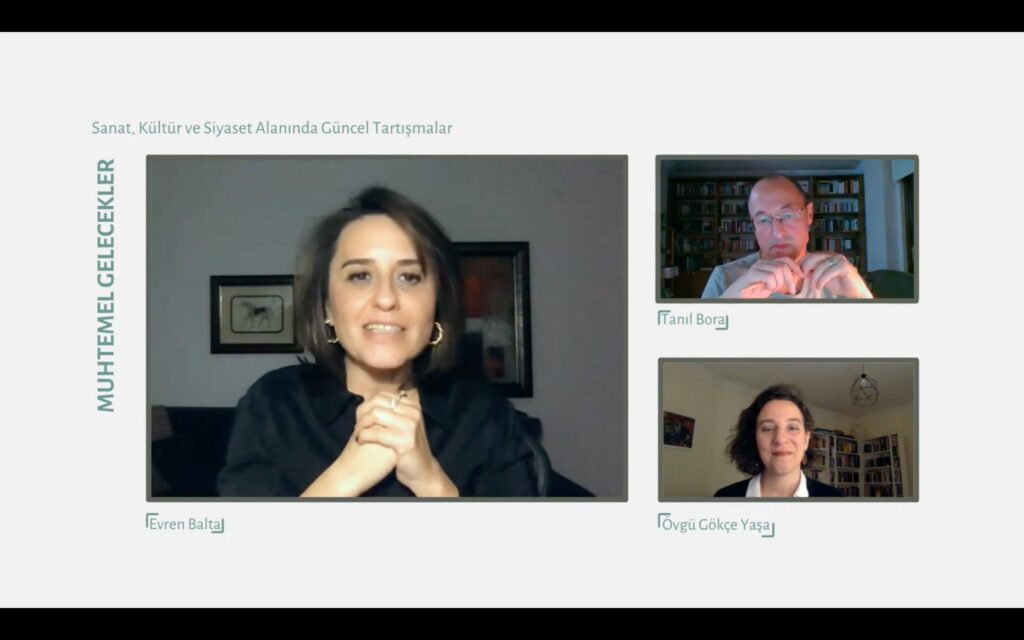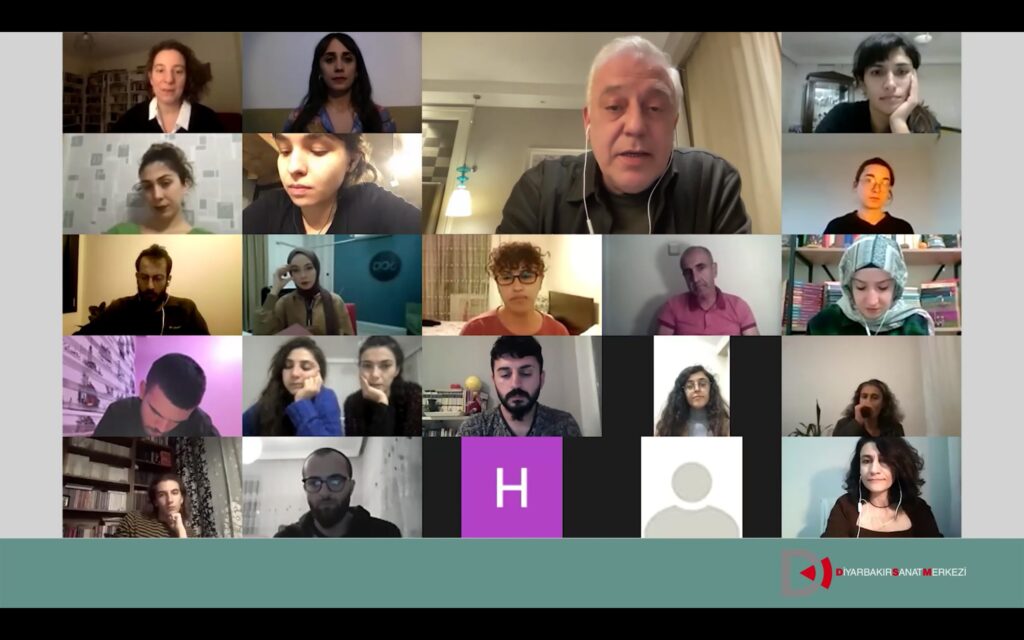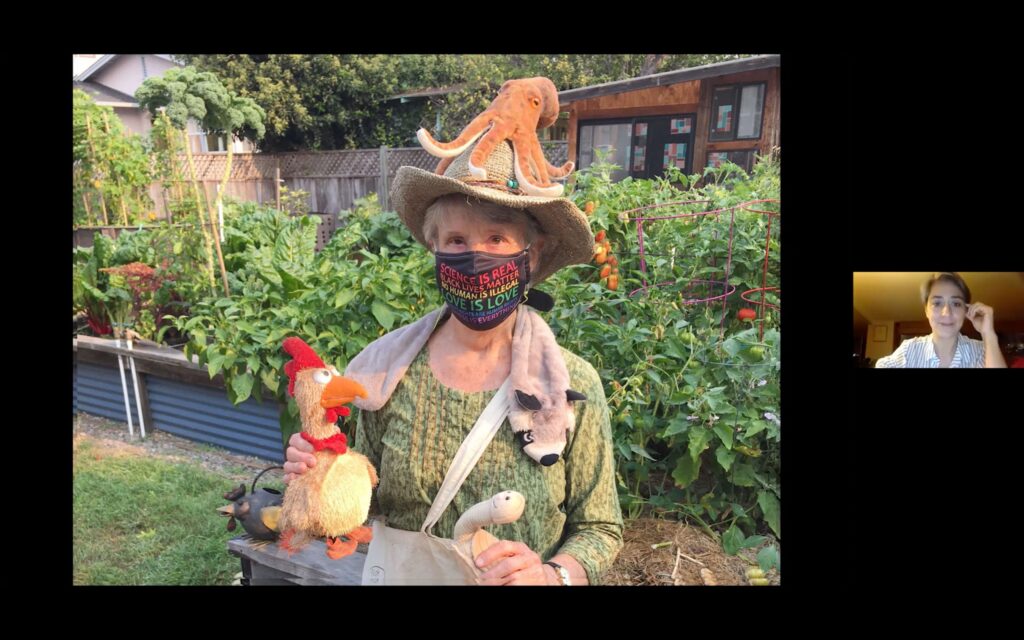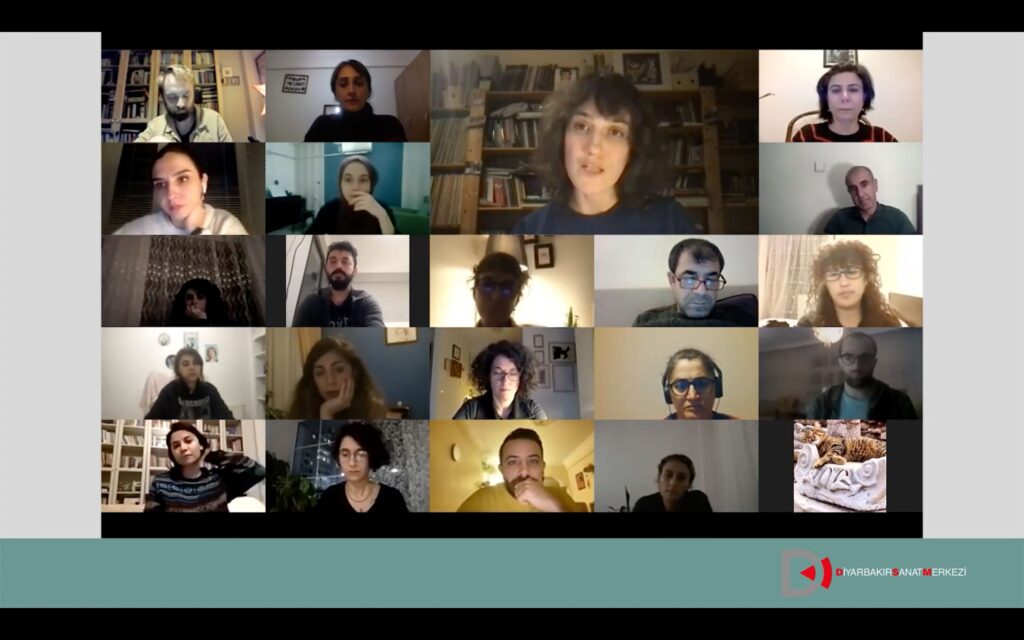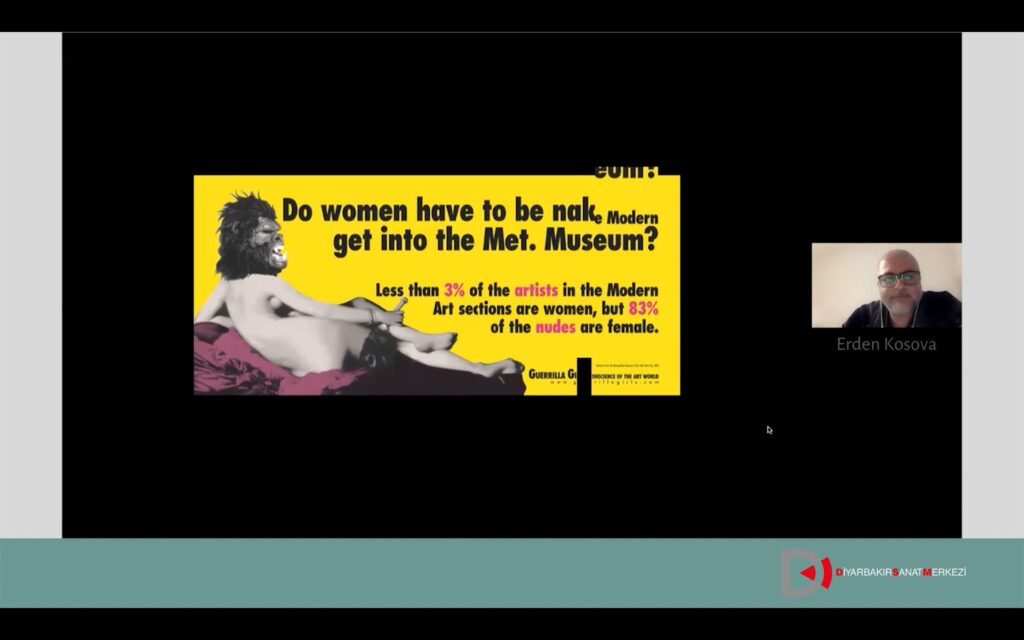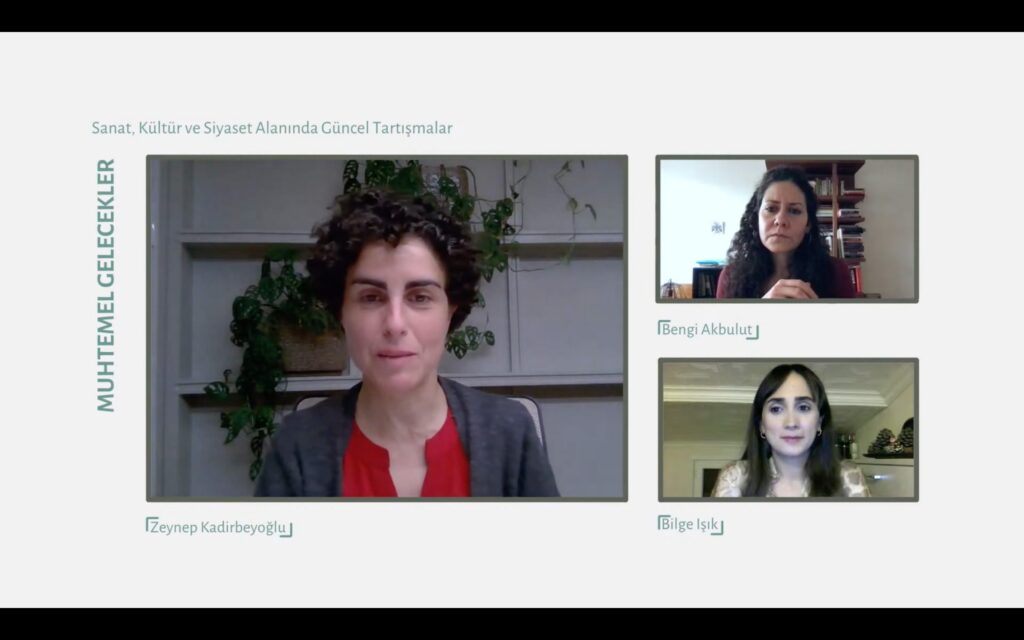POSSIBLE FUTURES: CONTEMPORARY DEBATES IN ART, CULTURE, AND POLITICS
November 12- December 17, 2021
Opening Event: ‘Disaster, Fear, Hope: Possible Futures from Dystopia to Utopia
In this talk, Evren Balta and Tanıl Bora delved into several questions that provide a comprehensive overview of the program's framework: ‘We are currently in the midst of a long-term, a large-scale structural crisis that poses a threat to all of humanity. The future we face is one in which resources are depleted, conflicts are normalized, species are extincting, and natural disasters are occurring at unprecedented rates. We face a crisis where democracy is losing its influence as a narrative of cooperation, the representativeness of institutions is eroding, the economy is radically losing its redistributive capacity, inequality is growing within and across borders, and social polarization and hatred are on the rise. In such a world, how can we develop our moral imagination to fully comprehend the horror of human action and creation? What are the underlying factors contributing to the feelings of disaster, fear, and hope, which are projections of the current time, and what types of unique intersections do these feelings create? How can we reconstruct the possible future(s) that await us in the present? If dystopia and disaster exist in the present, is it possible for the future to be a space of hope?’
Speakers: Evren Balta, Tanıl Bora
Speakers: Evren Balta, Tanıl Bora
Truth: History, Subject, Justice
In this seminar, stemming from the concept of truth, which is one of the fundamental topics in philosophy, Ferda Keskin discussed the possibilities that a new conceptual framework based on the historicity of truth, justice, and the subject as an alternative to the traditional framework consisting of a universal understanding of truth and a corresponding universal justice and a universal subject can embark. Keskin opened up critical moments such as the transformation of the understanding of truth in historical rupture moments, the relationship between the understanding of truth and the need for justice, the historical formation of the modern subject, and the radical questioning of modern reason and rationality for discussion in light of the political developments after World War II. The seminar, which explored the relationship between the search for truth and the demands for justice and equality in the reality of the multiple crises facing the world through several examples, also involved discussions about how art, as a means of seeking truth, multiplies these questions at various moments and offered insights about the post-truth era.
Speakers: Ferda Keskin
Speakers: Ferda Keskin
Anthropocene: Concepts, Concerns, Possibilities
This seminar, facilitated by Sibel Yardımcı, consisted of three main parts. The first part was centered on the concept of the anthropocene and the criticisms directed at it, as it emphasized the limitations of anthropocentric perspective and/or thinking within anthropo-nature dichotomy. The second part provided a summary of the different concept clusters and research approaches developed over time by scholars Donna Haraway and Anna Tsing renowned in the field, and focused on the potential of these concepts and approaches. In the final part, ecological anxiety, ecological mourning, and ecological justice were discussed. By highlighting the destruction and inequalities that underlie and (re)produce our current situation, the possibility of ‘staying with the trouble’ (Haraway) and ‘life in capitalist ruins’ (Tsing) was questioned.
Speakers: Sibel Yardımcı
Speakers: Sibel Yardımcı
Rethinking Anthropocentrism Through Films: Encounters with Animals, Alternative Ways of Seeing
In this seminar, Özlem Güçlü focused on the representation of animals and the human-animal relationship in cinema, the organization of cinematic space through narrative and stylistic preferences, and the possibilities of imagining beyond reproducing the exceptionality of the human and the humane. The seminar also referenced the profound transformation of the image of thought by the ‘posthuman turn’ that the social sciences and humanities are undergoing, as well as various concepts and debates stemmed from the film studies during the ‘animal turn’. During the seminar, various examples that challenged or disrupted the usual anthropocentric normative regime of representation that surrounds our encounters with film animals, that attempt to produce other, more just ways of seeing and spectatorial positions, that explore and invent were discussed along with the possibilities that these examples reveal. In this way, attention was drawn to the potential of films in both reproducing and subverting the anthropocentric ‘dominant fiction’ (as coined by Rancière), which presents itself as the ‘truth’ of animals with all its violent consequences, and to the fact that cinema is intimately connected not only with ways of seeing but also with ways of living (as stated by Pick).
Speakers: Özlem Güçlü
Speakers: Özlem Güçlü
The Relationship Between Politics and Art in the World and Turkey: Key Transformations from 1945 to Present
In this final module of the seminar series, Erden Kosova dwelled upon the political characteristics of the neo-avant-garde and conceptualist movements that emerged in the late 1960s, drawing from the artistic positions that emerged on the political map after World War II. After exploring the dissolution of the Western-dominated art narrative starting from the 1990s, the spatialization of art practices, the intensification of interdisciplinary interaction, the definition of ‘contemporary art’ as a separate field, and the evolution of the dematerialization trend in art towards ‘academic and educational turns’, the discussion moved on to the problems that emerged with the strengthening of institutionalization-commercialization dynamics. The discussion then shifted to seeking answers to the question of how this same chronological flow took shape in the Turkish context, followed by an open discussion with the participants.
Speakers: Erden Kosova
Speakers: Erden Kosova
Closing Event: “The Future is Now: Envisioning Possible Futures Through Concrete Utopias
In this talk, Bengi Akbulut and Zeynep Kadirbeyoğlu sparked a discussion stimulating the imagination by posing thought-provoking questions that challenge preconceptions about the darkness of possible futures: ‘The most pernicious and perhaps the most perilous of the intertwined crises of our time is the bankruptcy of the (political) imagination. At a time when the familiar narratives and familiar institutions of coexistence falter, and the uncertainty of what can replace them exacerbate the climate of disaster and fear that we find ourselves in. Because today's crises are fueled precisely by the ability to render oppositional histories and experiences invisible. If we establish a space of hope here and now, can we envision a horizon for a politics of hope based on the existing? How should we discuss the possibilities opened up by current imaginations and practices, and the open-ended futures they construct? Is it possible to provoke collective imagination about possible futures by looking from today’s perspective?’
Speakers: Bengi Akbulut , Zeynep Kadirbeyoğlu
Speakers: Bengi Akbulut , Zeynep Kadirbeyoğlu


